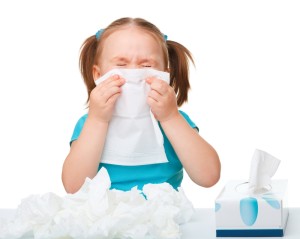 Wheat allergy is an abnormal reaction from the immune system to one of the proteins commonly found in wheat. Understanding a little about the allergy can be helpful in choosing the foods you need to eat and how you can cut down upon your symptoms in the process.
Wheat allergy is an abnormal reaction from the immune system to one of the proteins commonly found in wheat. Understanding a little about the allergy can be helpful in choosing the foods you need to eat and how you can cut down upon your symptoms in the process.
It is important to determine if you have a wheat allergy or if you have a much broader condition called celiac disease. This immune system disease is a reaction to any foods containing gluten; wheat is only one of the foods on this list. Here the body basically has a reaction to glutenous grains. Celiac disease causes an inflammation in the small intestines. This could be why you find that your food choices are so restricted since you are allergic to all glutenous products. It is worth checking out.
You mentioned that you had wheat allergy since you were six, wheat allergy is actually very common in children. What happens is that body will develop an antibody against wheat and treat it as a foreign invader, a toxin, and then the body will fight back to rid itself of this foreign invader. Normally children outgrow a wheat allergy. The allergy develops in infancy and by the time they are about 5 the symptoms have disappeared. However, children with wheat allergies normally have other allergies as well. It is less common for teens and adults to have a wheat allergy.
 There are four different categories of proteins in wheat that cause the allergies: These are albumin, globulin, gliadin and gluten. Anyone of these proteins can be causing your allergic reactions.
There are four different categories of proteins in wheat that cause the allergies: These are albumin, globulin, gliadin and gluten. Anyone of these proteins can be causing your allergic reactions.
You did mention that you broke out in hives. Yes this is a common symptom of wheat allergy. Other symptoms include: swelling, itching or irritation of the throat or mouth, nasal congestion, itchy watery eyes, difficulty breathing, cramping, nausea or vomiting, diarrhea and anaphylaxis.
Anaphylaxis is life threatening, and these symptoms would include swelling or tightness of the throat, trouble swallowing, chest pain or tightness in the chest, severe difficulty breathing, weak pulse, dizziness or fainting, a pale blue skin color. If you experience any of these symptoms you need to get to the hospital immediately. People that know already that they may go into an anapylalactic reaction will carry two dosages of epinephrine to have on hand just in case they need it. They will inject the epinephrine in order to relieve the symptoms. The reason there is two dosages is because they may not be able to get to a doctor immediately and the second dose will tie them over until they can be seen at emergency. It is important to be seen by emergency for a check over even when the first injection has already been administered.
 Although you have been living with these symptoms for a long time and probably already know what you are allergic to in terms of food, here is a list which is associated with wheat allergies: breads, cakes and muffins, breakfast cereals, pasta, couscous, crackers, beer, hydrolyzed vegetable protein, soy sauce, condiments, such as ketchup, meat, crab, or shrimp substitutes, coffee substitutes, meat products, such as hotdogs, dairy products, natural flavorings, gelatinized starch, modified food starch, vegetable gum. You may also be allergic to similar grains with similar proteins and they are barley oats and rye. There is also Baker’s asthma, which is a reaction to any type of flour. Sufferers will have difficulty breathing, just by inhaling flour.
Although you have been living with these symptoms for a long time and probably already know what you are allergic to in terms of food, here is a list which is associated with wheat allergies: breads, cakes and muffins, breakfast cereals, pasta, couscous, crackers, beer, hydrolyzed vegetable protein, soy sauce, condiments, such as ketchup, meat, crab, or shrimp substitutes, coffee substitutes, meat products, such as hotdogs, dairy products, natural flavorings, gelatinized starch, modified food starch, vegetable gum. You may also be allergic to similar grains with similar proteins and they are barley oats and rye. There is also Baker’s asthma, which is a reaction to any type of flour. Sufferers will have difficulty breathing, just by inhaling flour.
You say you are building up a tolerance over the years to wheat products. It may be a good idea to go for a new allergy test just to see what allergies you still have. Some allergies are permanent and some go away in time. Now for the answer to the burning question you asked. Unfortunately you cannot get rid of a wheat allergy. You have to avoid wheat, but you may be able to increase your food choices by investing in some wheat-free cookbooks.
Related Articles
